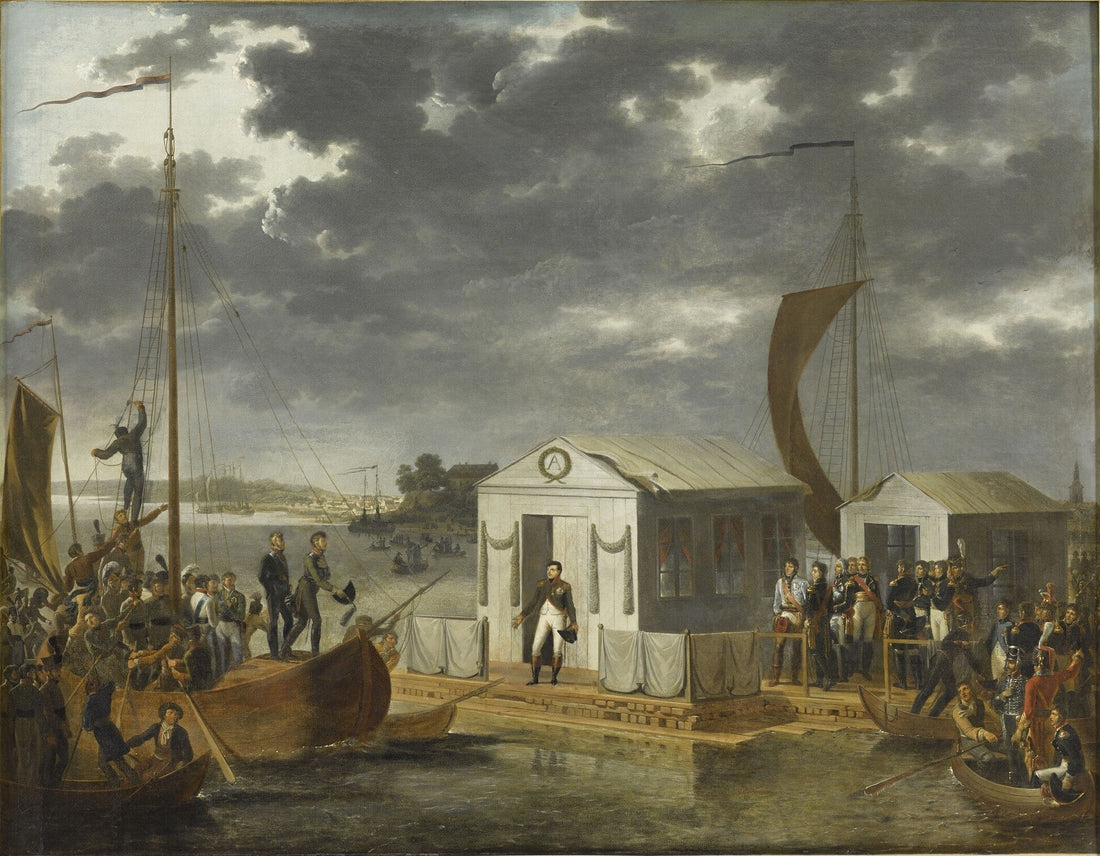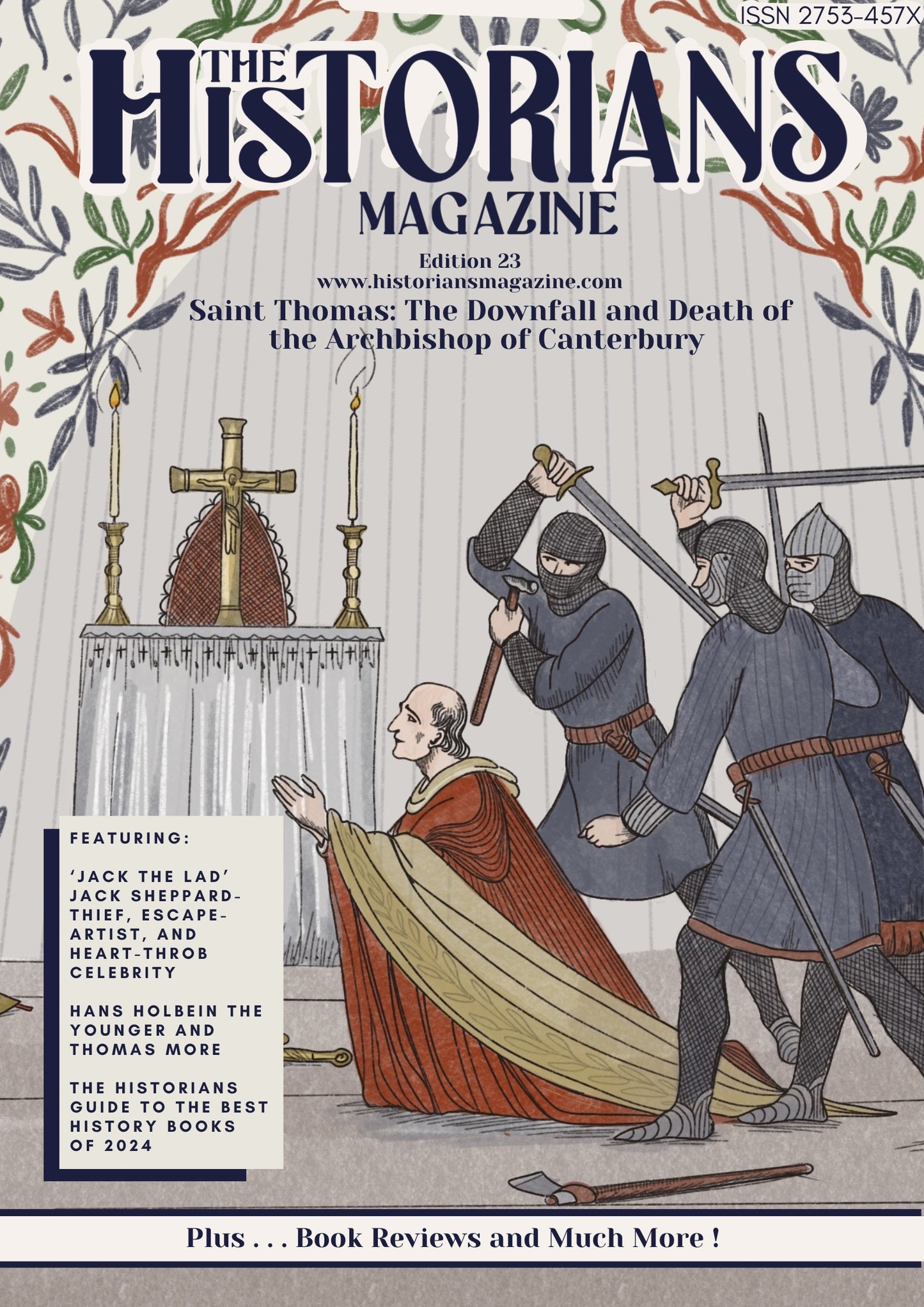
The Consequences of the Treaty of Tilsit by Aida Kane
Share
A Temporary Resolution of Conflict
Over the span of only 22 years, between 1793 and 1815, the leader of France climbed the ranks from General to First Consul to Emperor. At the height of his power, Napoleon Bonaparte reigned more than half of Europe. The First French Empire included 130 departments and seven Kingdoms. Napoleon controlled Belgium, Holland, the Confederation of the Rhine, Switzerland, the Grand Duchy of Warsaw and the Hanseatic Coast of Germany. Territories like Westphalia, Naples and North-East Italy were ruled by his family, while the independent States of Austria, Prussia and Russia were considered allies. However, the relations between Russia and France were far more complex than a traditional allyship. Between 1805 and 1807, in an effort to fight the French Empire, Russia formed coalitions with three different European countries. The battles that took place between the two nations were Austerlitz, Eylau and Friedland. Russia was defeated in all three battles. The Grande Armée's technical and strategic superiority was shaped by the great Marshals and Generals of the Empire. Napoleon relied on these men to lead his armies. They were all talented and brave, and many were considered heroes. The aftermath of France's victory at the battle of Friedland was the Treaty of Tilsit. The agreements at Tilsit put a temporary halt to the confrontations between France and Russia. No Russian territory was occupied. France agreed to help Russia fight against the Ottoman Empire. Russia agreed to cease trade and economic connections with Britain by joining the Continental Blockade of 1806. Many Russians believed that the Tsar had made an alliance with the antichrist and, as such, were outraged by the treaty.
Top Image: Napoleon meets Alexander in June 1807
A Weakened Russia Provokes Napoleon
By 1810, the lack of British products and merchandise had significantly weakened the economic power of the European Nations. The Russian Government lost customs revenue. The Russian nobles, who owned the majority of the forests, lost their primary revenue source due to the cease of timber exports. As well, Russian merchants lost profit when the export of hemp and flax was stopped. As a result of these issues, the Russian national deficit skyrocketed from 7 million roubles in 1801 to 143 million in 1809. As Russia’s economic situation worsened, various economic groups within Russia demanded the abolition of the Tilsit Treaty. The Tsar was determined to protect his people, even if that meant openly defying the Emperor of France. First, he issued a ukase forbidding the import of luxury merchandise, including French goods like wine and silk. Second, Alexander decided to allow shipments from America and other neutral countries to enter northern Russian harbors. This decision circumvented the ban on their entry into the neighboring German harbors. The Emperor was furious about these two actions. In response to the Emperor’s protest, the Tsar stated that France had breached the continental system by allowing limited French exports to England and admitting neutral ships to his own harbors. "Your majesty cannot expect to impose on the Russians, as on the people of Hamburg, privations that you no longer impose on yourself,” Alexander said to Napoleon.

Alexander I of Russia
The Onslaught of War
The Tsar’s defiance was highly political. Alexander hoped to gain control of the Danubian Principalities and Constantinople. He gained the promise from Napoleon that Poland would never be re-established. However, when the Emperor of France seized the German coastal state of Oldenburg, Alexander became deeply resentful. He saw it as an attempt to enlarge the Duchy of Warsaw and create a new Polish Kingdom. He controlled Finland which became semi-autonomous with himself as Grand Duke. The relationship between the two men steadily deteriorated. Alexander considered Napoleon an usurper who betrayed the ideals of the French Revolution and the Enlightenment for his own personal gain. However, he also understood that he should not underestimate the Emperor's political skills. On April 27 1812, Alexander sent Napoleon a note. If Napoleon kept his promise of withdrawing from Prussia, Alexander committed to withdraw his protest about the annexation of Oldenburg, modify his ban on the import of French luxury goods and re-impose the blockade on English ships. Napoleon perceived this as an ultimatum, declaring war against Russia. Napoleon and The Grande Armée crossed the Niemen River on June 22 1812. As he rode down the river, looking for a crossing point, his horse shied at a hare between his hooves, throwing Napoleon from the saddle. When he remounted his horse, his brigadier, General Ségur, turned to him and said: "A Roman would have abandoned the expedition," but the Emperor of France laughed it off and resumed his search for a crossing point. Many interpreted this as an evil omen.

The French Army on the banks of the Niemen
About the Author
Aida Kane is the founder of a small production company called Wallflower Documentaries. Her passion is to tell the great stories of those who came before us in historical art house documentaries. In addition to working on documentaries, she's a bilingual English/French journalist and the founder of an EdTech company called Picnotes.



